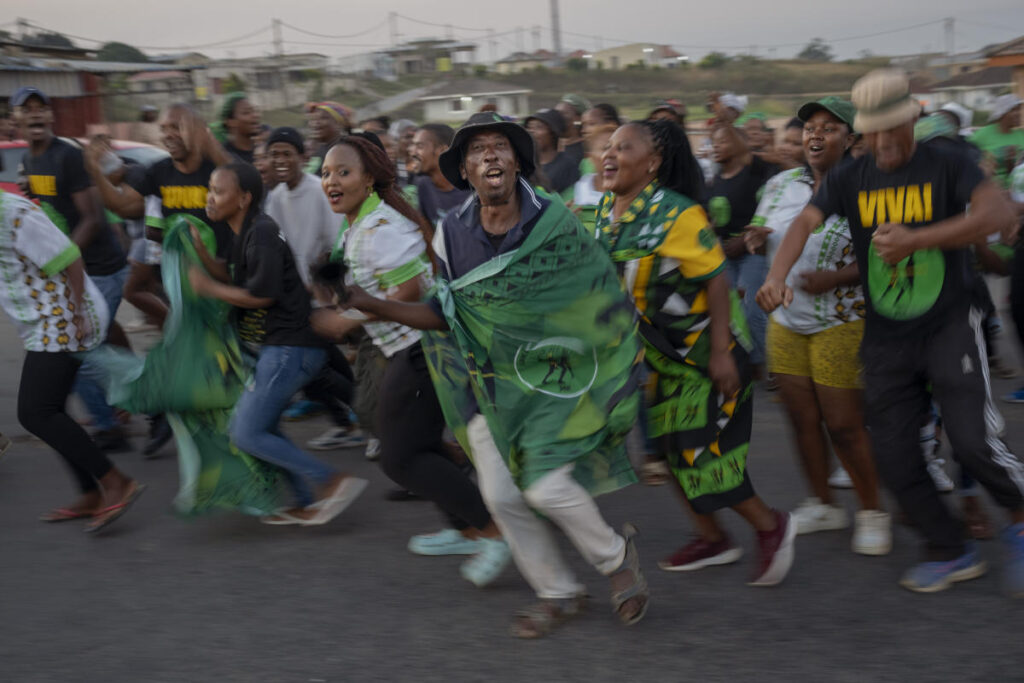CAPE TOWN, South Africa (AP) — Real politics in South Africa can begin after the final results of this week’s elections to be announced as the country faces the possibility not an outright winner.
The first results showed on Thursday the ruling African National Congress at well below 50% of the national vote as counting continued, reinforcing pre-election analysis that the party dominated South African politics for thirty years could lose its outright majority in the coming days.
While some opposition parties will proclaim that as a victory for change, it is unclear how change would ultimately materialize if the ANC were to lose its majority.
The ANC is still far ahead of its next challenger in terms of partial results. Even in the worst-case scenario for the ANC, it comfortably wins the most votes. But without a majority, a coalition would likely be needed to form a government and – in the first case after the elections – choose a chairman.
There are few indications of who the ANC might work with. This means that now that South Africa is experiencing a milestone, complications are afoot if the ANC remains below 50%.
CHOOSING A PRESIDENT
Electing the head of state is the first priority after the elections. South Africans vote for parties in national elections and not directly for their president. The elections determine how many seats each party gets in parliament. The president is then chosen by lawmakers after the election.
Because the ANC has had a clear majority in the 400-member parliament since the end of apartheid in 1994, the process of electing its leader as president has been straightforward.
This year it could be very different. Without a majority of lawmakers, the ANC would have to find parties to vote with in parliament to reach the magic number of 201 to be re-elected. President Cyril Ramaphosa for a second and final term of five years.
FORMING A GOVERNMENT
Again, if the ANC does not have a majority in parliament, it would need that agreement or coalition to also form a government. This has long-term implications, as each coalition would effectively decide whether to pass laws and the government’s ability to translate policy into action.
Without an agreement, the ANC would not be able to govern – or in this case, co-govern.
WHAT COMES NEXT
A timeline is established for what needs to be done and when it needs to be done. The national election results must be announced within seven days the polling stations close on Wednesday. The Independent Electoral Commission leading the elections says the results will be announced on Sunday, well within the deadline. From the moment the results are announced, the new parliament has 14 days to convene for its first session and elect a president.
The period between the announcement of the results and the sitting of Parliament is then expected to see a wave of votes negotiations between parties to see what can be worked out. Who the ANC might strike a deal with is anyone’s guess, given how little the party has said about coalitions.
It will also depend on how far the ANC is from a majority – if indeed it falls short in the end results. If it only needs a few percent to get above 50, it might be able to approach smaller parties. Some have already said they do not want to work with the ANC.
If it is further away from a majority, it will probably have to talk to one of the two largest opposition parties. The centrist Democratic Alliance is the second largest party behind the ANC and the far-left economic freedom fighters is the third largest. They have very different ideologies and could take the ANC in very different directions.
“All bets are off in this election,” said John Steenhuisen, leader of the Democratic Alliance. “We are on our way to coalition country.”
___







